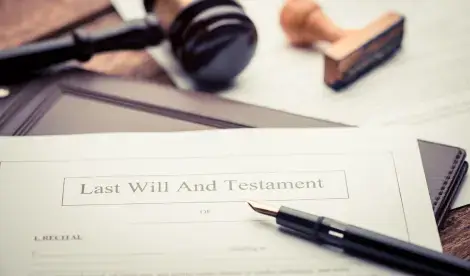Gemma Spencer BA
- Solicitor, Partner and Joint Head of Legal Services
- 01403 253 282
- Email Gemma
Suggested:Result oneResult 2Result 3
Sorry, there are no results for this search.
Sorry, there are no results for this search.
View all peoplePublished by Gemma Spencer on 17 August 2020
Share this article
The valid execution of Wills has been a challenge for legal professionals in the context of social distancing rules. Now, a relaxation of the rules to permit the remote witnessing of Wills offers a new option. So what do you need to know?
In order to validly execute your Will it must be signed by you in the presence of two witnesses. The key word is “presence” and up until now the physical presence of both witnesses at the same time was required for valid execution. The relaxation of this rule will mean that video link software – such as Skype, FaceTime and Zoom – can be used by witnesses to witness the signing of Wills so that physical presence is not required.
The remote witnessing rules will apply for a period of two years (which can be shortened or extended) and will be backdated to Wills executed from the 31st January 2020.
The rest of the rules regarding the witnessing of Wills will still need to be complied with so it may not be as straightforward to remotely witness a Will as it first appeared. These rules are complex and we expect some of the ways in which the remote witnessing procedure will need to be carried out are as follows:
This list is not exhaustive and there are plenty more ways in which the remote witnessing procedure can be safely carried out.
Whilst the relaxation of the rules is a change welcomed by practitioners, a rise in challenges against Wills is predicted as a result of the new rules. The process to validly execute a Will is designed to provide the maximum protection against fraud, undue influence and challenges from disappointed beneficiaries.
Such a large change to legal procedure inevitably brings with it a high risk for error, and caution must be exercised. With little available by way of official guidance, remote witnessing remains a last resort and it is essential to take professional advice to ensure you sign your Will using the correct procedure for your circumstances.
You can contact our legal team to find out how we can assist you in preparing and executing your Will.
Share this article
This site is protected by reCAPTCHA and the Google Privacy Policy and Terms of Service apply.
Our complimentary newsletters and event invitations are designed to provide you with regular updates, insight and guidance.
You can unsubscribe from our email communications at any time by emailing [email protected] or by clicking the 'unsubscribe' link found on all our email newsletters and event invitations.
This site is protected by reCAPTCHA and the Google Privacy Policy and Terms of Service apply.




